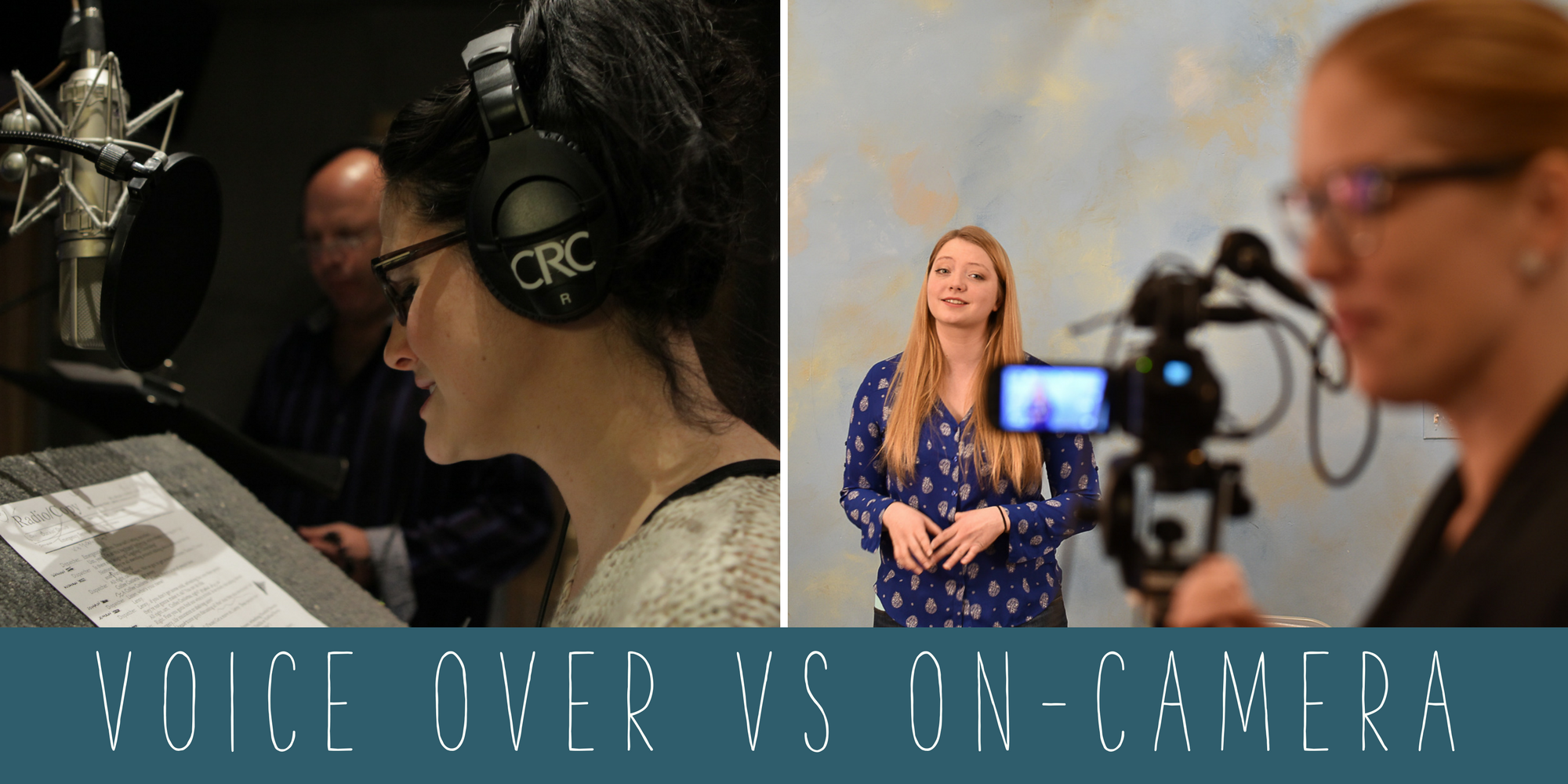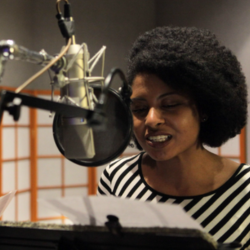Get Physical! Voice Over VS On-Camera
Written by Allison Latta, edited by Destini Huston
What is the difference between preparing for voice over vs on-camera auditions? A lot of people assume that preparation for VO is somehow less involved than on-camera. You aren’t required to memorize anything and you can wear whatever you want, right? This is partly true. Still, I’m convinced that there’s equal prep involved in a VO audition as there is for one on camera.

When I receive a script, for camera or VO, I first try to understand the meaning of every single word. For instance, checking on pronunciations for company names, medications, less common phrases, etc. Additionally, I explore different points of view and acting choices that I can make, marking my script as needed. For voiceover specifically, I mark wordier scripts with moments to breathe as well.
For on-camera auditions, I prefer to know the script cold. I work hard to make sure that I have every word memorized.
When I’m fully memorized, I’m much more relaxed about physically playing and finding ways to “make the script my own”. I want to be able to present a number of options to the casting director when asked. In the audition room (and even via Zoom), a huge part of performing is how you tell the story through movement choices and actions. Here, my physicality is seen.
Conversely, there is no need to memorize VO scripts. Really, don’t waste your time.

VO scripts can be a lot wordier, and luckily I have the luxury of holding the script when I audition. Now that most VO auditions are recorded and submitted via email, find the preparation process that works best for you! That doesn’t mean I shouldn’t familiarize myself with the text. Knowing what you’re saying is key.
Interestingly, I’ve found that memorizing VO scripts makes me slip into a routine and deliver a stagnant read. I want to provide several different takes when asked. Therefore, I have a number of strong choices mapped out and marked on my script. Physically engaging with VO scripts is vital for a nuanced vocal performance. Feel free to move on-mic at home and in the booth, because engaging physically affects how you say the text. Even though casting directors won’t see my physical choices (as they would on camera), they will definitely hear it. In this case, my physicality is heard.

Though I sometimes wear pajamas for a VO audition, I put the same care in my performance as I would for on-camera. So, when you audition for voice over vs on-camera work, getting physical is a major part of your audition. The work is always there- even if you don’t see it, you can hear it.


